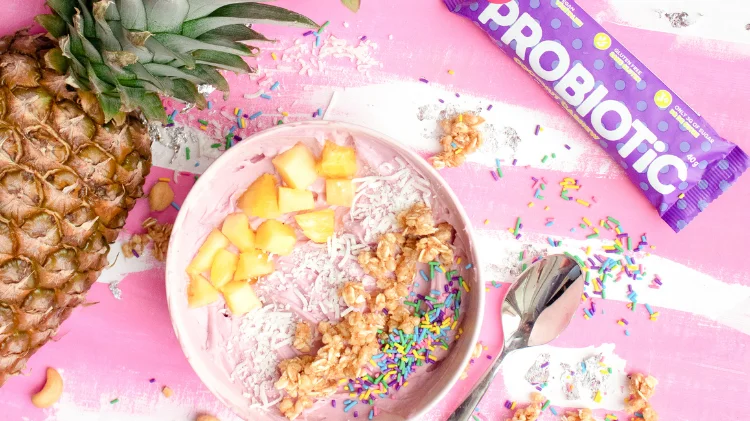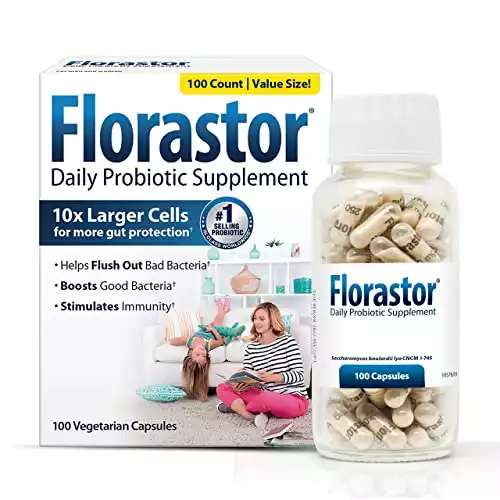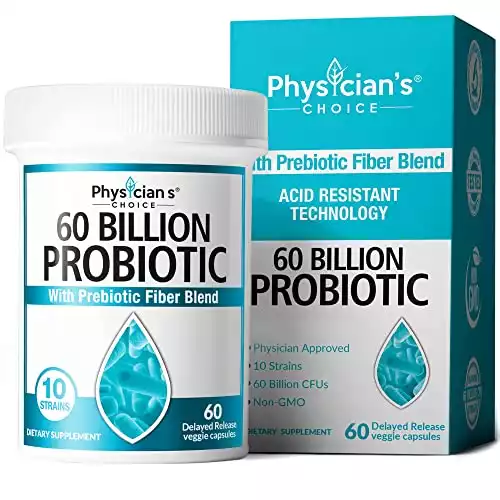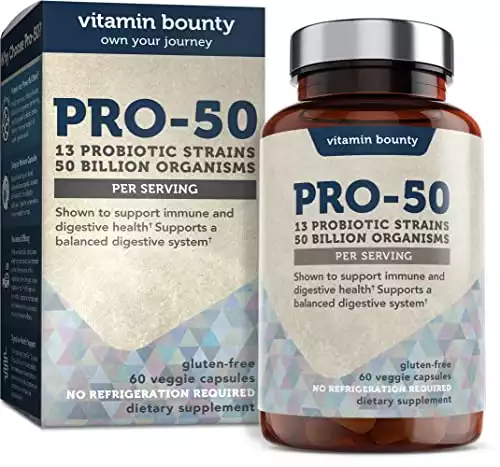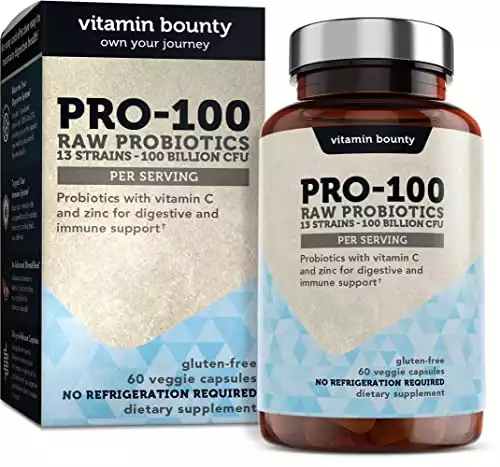While it may seem obvious that those with diverticulitis would be the ones researching possible probiotic treatment options and the best probiotics for diverticulitis.
Many people with diverticulitis may be aware that they actually have it.
After understanding how diverticulitis occurs, we can then explain the best probiotics for diverticulitis and how they can help manage this condition.
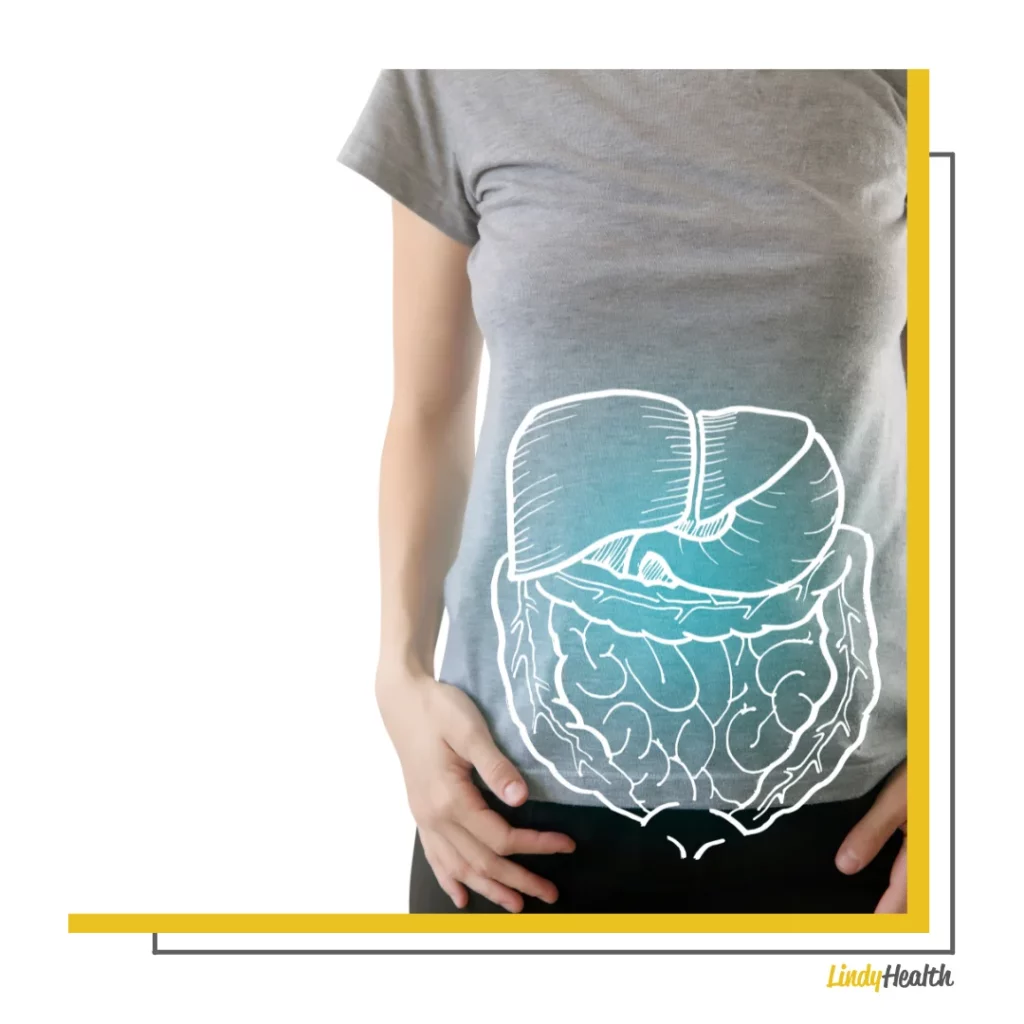
We should also mention that it is an extremely common condition in North America. It is identified frequently in colonoscopies as a ‘symptom’ of digestive malaise. Often, it is the root cause.
What is diverticulitis and what are the best probiotics for treating it?
Best Probiotics for Diverticulitis Review
Our medical experts specializing in gastrointestinal health have reviewed both the products and ingredients to make the best probiotic recommendation possible for those with diverticulitis.
Diverticulitis and Diverticulosis: Abdominal Distress
Diverticula are identified as small, building pouches that form in the lining of the digestive system. Commonly, they are found in the colon (lower portion of the large intestine).
While they may remain benign and never cause harm, if these pouches do become inflamed or infected – you’ve got a recipe for diverticulitis.
While “mild” cases are often addressed with bed rest, dietary adjustments and antibiotics, severe cases of progression may require invasive surgery.
The antibiotics are to address the infection, while you let your intestines and digestive system heal through diet adjustments. This often means a restrictive diet limited to broths (bone broth, chicken stock), soups, teas, yogurts, and purees (think anything from almond butter to unsweetened applesauce).
There is little evidence to support this kind of diet, even for acute diverticulitis. Antibiotics can also be a risky treatment option.
How would you know if you have diverticulitis?
- Pain in the lower side of the abdomen (frequently the left side).
- Cramping in the abdomen that fades or dissipates upon bowel movements or passing gas.
- Blood in stool.
- Constipation, and difficulty with bowel movements.
- Nausea, vomiting, and fever in more serious infections.
- Abdominal tenderness.
These diverticula typically form from spots within your colon experiencing more pressure than they can handle, which results in these “pouches” protruding through the wall of the colon.
They are often exceptionally small, around the size of a coin.
Certain things are shown to predispose people to diverticulitis, although it is more common as we naturally age. It is believed that diet plays a fundamental role, with NSAIDs like Aspirin contributing to risk. Other factors include low-fiber diets, obesity, and smoking.
Diverticulosis is simply the presence of these diverticula, while diverticulitis signals an actual infection or inflammation of them.
Is it Possible to Treat Diverticulitis with Probiotics?
Historically, the role of diet in preventing or healing diverticulitis has long been questioned – research does demonstrate that a high-fiber diet, rich in vegetables, nuts, seeds, and legumes can reduce the risk of diverticulitis.
This condition is predominantly a Western problem. This is partially due to the reliance on refined grains, processed food, and unhealthy lifestyle habits in North American culture.
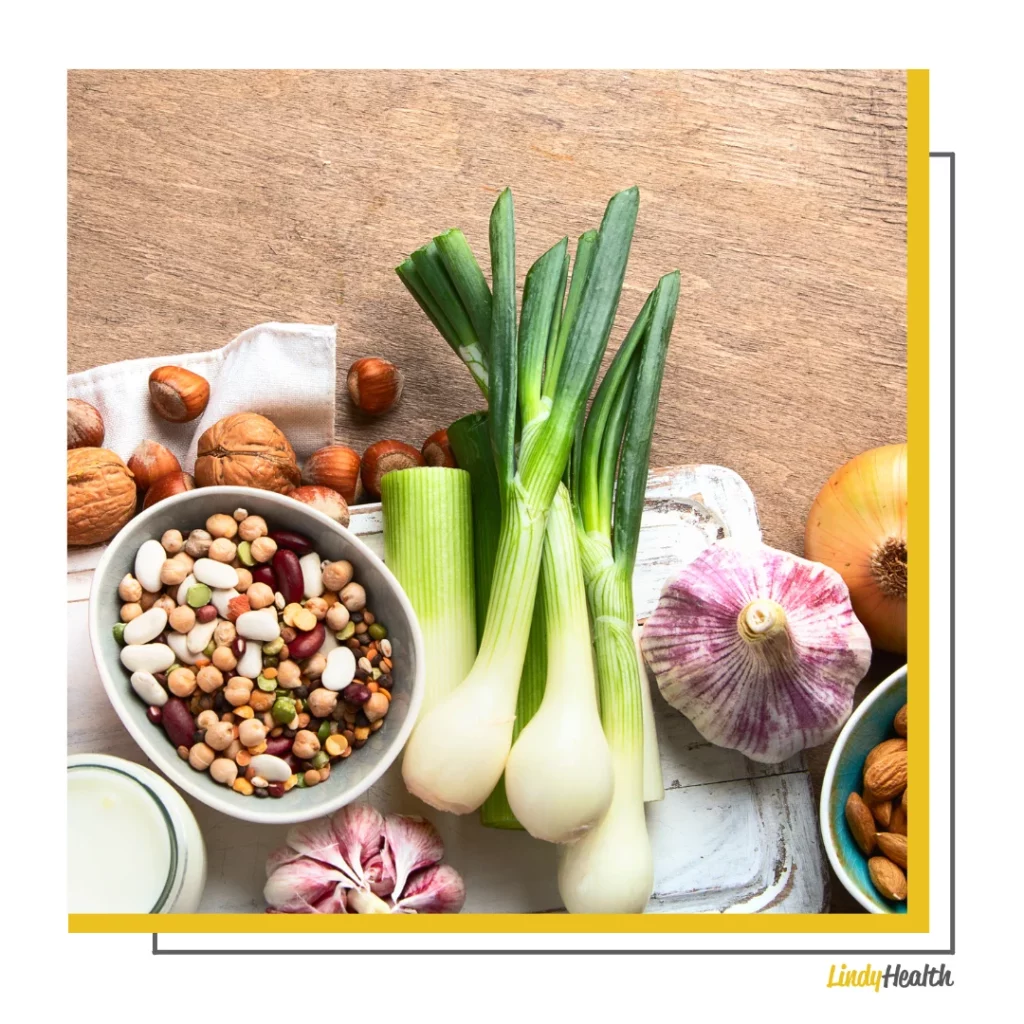
Science has long debunked the claims that nuts, corn, and seeds are to be avoided as potential triggers for fear of getting “lodged” in the diverticulum. What the science actually shows is that individuals who consumed more of these foods (namely nuts and seeds) were less likely to develop diverticulitis.
How do probiotics come into play in this equation? Can they help prevent diverticulitis from happening, or reduce the severity of it?
While we would hesitate to say probiotics can “treat” diverticulitis, they can confer health benefits to many suffering.
In cases of diverticulitis, it is shown that there is a reduced diversity of microbiota (good gut bacteria) that can cause internal mucosal activation. This perpetuates a cycle that also causes constant inflammation of the microbiota and damage to the digestive system.
The microbiome itself is of huge importance to treating diverticulitis and preventing it. In one literature review across hundreds of patients, probiotic strains were found to greatly reduce abdominal symptoms in those with symptomatic diverticulitis (uncomplicated).
The proof of the efficacy of multiple probiotic strains is reflected in those who had a complete remission via treatment with a fecal transplant.
Best Probiotic Strains Are Best for Diverticulitis
We know, from scientific studies, that the microbiota (bacteria in our gut) determine the level of inflammation from diverticulitis. Patients with this condition are shown to have a greater expression and concentration of problematic (bad) bacteria: Streptococcus, Enterobacteriaceae, Akkermansia. These fuel the inflammatory process and act as an enhancing factor in the progression of diverticulitis.
At the same time, the same patients demonstrate a reduction in “good” anti-inflammatory bacteria: Lactobacillus salivarius, Lactobacillus acidophilus and Bifidobacterium lactis.
These changes have been monitored in those with developing diverticulitis. They can also be a driving force behind diverticulitis in the first place.
Indeed, we know that gut bacteria contributes to gut motility. Altered gut motility can lead to muscular dysfunction, and diverticulitis in turn. This means altered motility, from an unhealthy gut can cause “bacterial translocation.”
The effect that antibiotics have on a primary infection from this condition may also depend upon the antibiotic’s ability to eradicate these harmful strains of bacteria.
The following probiotic strains have appeared to show the most promise in addressing diverticulitis and gut dysbiosis:
- L. acidophilus and L. salivarius Ls33 were among the best-performing for increased induction of IL-10 and decreased induction of IL-12 (inflammation markers).
- L. salivarius Ls33 shows promise in that its administration is linked to an improved recovery of inflamed tissue and reduction in pathogenic bacteria.
- B. lactis LA 304, L. salivarius LA302 and L. acidophilus LA 201, have a well-known ability for reducing TNF levels, and can be combined with standard antibiotic therapy.
- Lactobacillus salivarius, Lactobacillus acidophilus and Bifidobacterium lactis have been proven to be effective in managing acute diverticulitis.
Conclusion
Probiotics can help to improve outcomes by replenishing anti-inflammatory bacteria in the gut where there is:
a) depleted populations of healthy bacteria, and
b) proliferation of these problematic strains.
Now that we know that bacterial colonization of diverticula is involved in the cause of acute diverticulitis, the rationale for the role of probiotics in treatment becomes crystal clear.
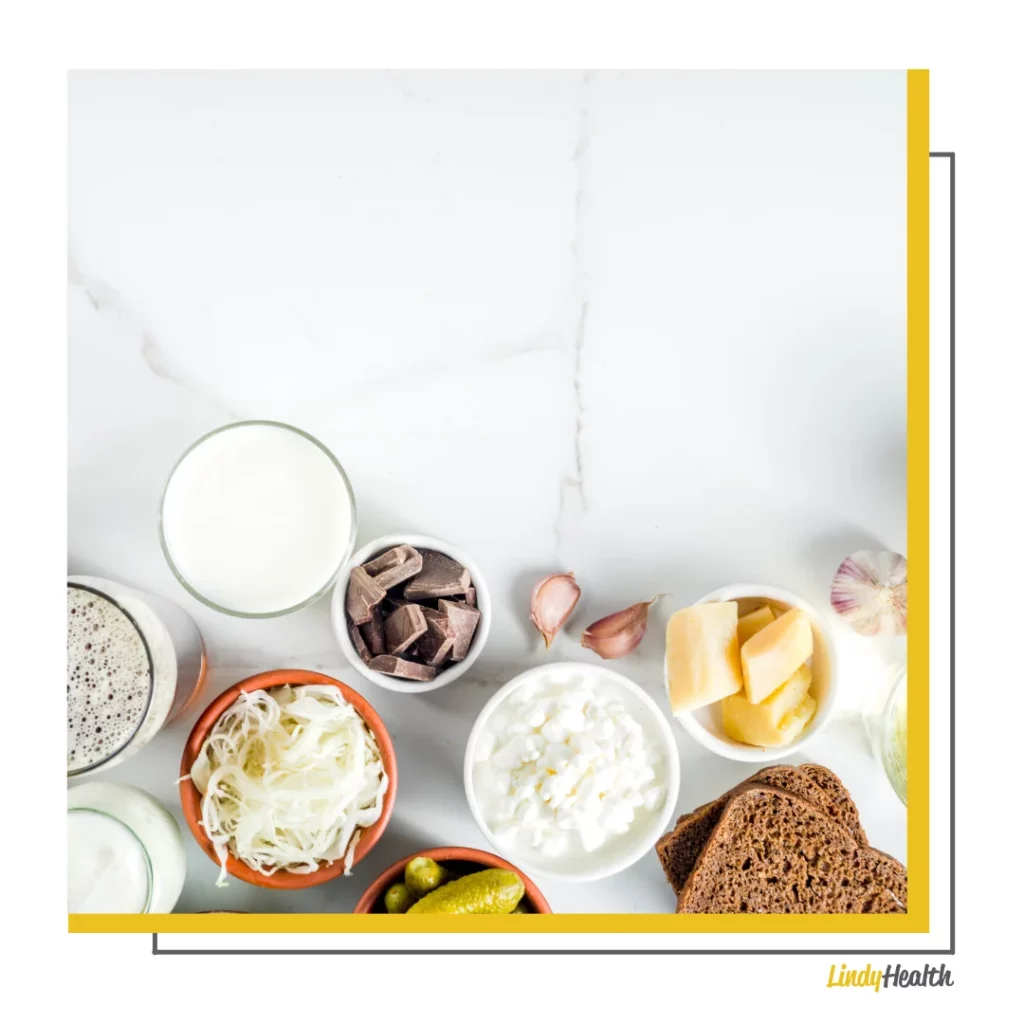
For those experiencing the difficulty of diverticulitis, we also have a thoughtful guide on cookbooks for those with the condition to better understand the role of diet, along with a more specific guide to nourishing soups that won’t irritate the digestive system (but promote healing).
What have you found to be the best probiotic for diverticulitis?
Let us know in the comments below.
- Rivea Corymbosa: The Magical Plant - October 18, 2022
- P90X Workout sheets - October 14, 2022
- Best Probiotics for Diverticulitis (5 That Work) - October 4, 2022



